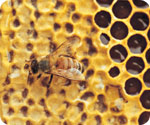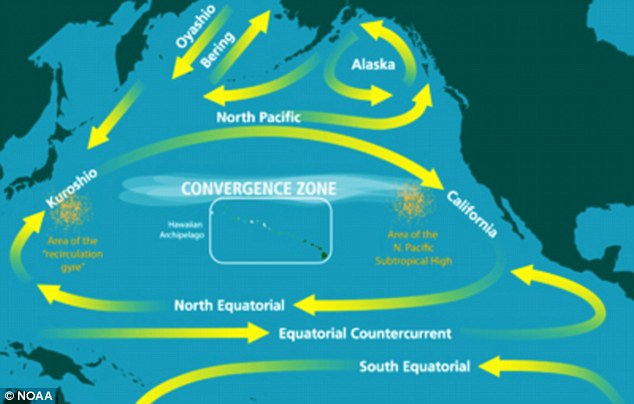 Of particular interest was Ingram's extensive research on Monsanto's Roundup herbicide, which began several years ago when hundreds of Ingram's hives had died. He later determined that Roundup sprayings near his property were to blame, which prompted him to actively research the subject and closely monitor his hives in conjunction with this research from that point onward.
Of particular interest was Ingram's extensive research on Monsanto's Roundup herbicide, which began several years ago when hundreds of Ingram's hives had died. He later determined that Roundup sprayings near his property were to blame, which prompted him to actively research the subject and closely monitor his hives in conjunction with this research from that point onward.
Government tyranny: Illinois Department of Agriculture secretly destroys beekeeper's bees and 15 years of research proving Monsanto's Roundup kills bees
How Rural America Got Fracked:The Environmental Nightmare You Know Nothing About

March in Wisconsin used to mean snow on the ground, temperatures so cold that farmers worried about their cows freezing to death. But as I traveled around rural townships and villages in early March to interview people about frac-sand mining, a little-known cousin of hydraulic fracturing or “fracking,” daytime temperatures soared to nearly 80 degrees -- bizarre weather that seemed to be sending a meteorological message.
Fukushima's Nuclear Nightmare Is Far From Over (or the Disturbingly Deadly Act of Placing Profits Before People)

Why? Because companies such as Japan's TEPCO filter which members of the press are allowed access to information and they filter the information itself. In the US, companies such as GE, owning media outlets such as NBC, are also in the nuclear technology services business. Bad press about nuclear is simply bad for business.
The Pacific Ocean Is Dying - A Special Report On the Fukushima Nuclear Catastrophe
 Never in the history of humankind has the planet been confronted with such a grave set of circumstances. Fukushima represents all that can go wrong when scientific applications and technological advancement within a crude industrial context have gone awry. Unfortunately, given the many trajectories that numerous fields of technological innovation are currently on, Fukushima and the BP Gulf oil spill of 2012 may only be the beginning of an accelerating period of technospheric breakdown which will plague the Earth.
Never in the history of humankind has the planet been confronted with such a grave set of circumstances. Fukushima represents all that can go wrong when scientific applications and technological advancement within a crude industrial context have gone awry. Unfortunately, given the many trajectories that numerous fields of technological innovation are currently on, Fukushima and the BP Gulf oil spill of 2012 may only be the beginning of an accelerating period of technospheric breakdown which will plague the Earth.
“Quite purposefully, no one ever stopped to consider the obvious and far-reaching ramifications of constructing 55 nuclear reactors on the most seismically active piece of property on planet Earth! And, that doesn’t count another 12 reactors in various stages of planning or development.”
Japan has clearly shown that this disaster is way beyond their ability to manage and capacity to address in any meaningful way. Their entire culture seems to ensure that the real problems will be constantly swept under the rug. The problem this time around is that there may be no rug soon to sweep it under.
What Do GMO Seeds Have to Do With Bee Die-Offs in the Corn Belt?
 No farmer in their right mind wants to poison pollinators. When I spoke with one Iowa corn farmer in January and told him about the upcoming release of a Purdue study confirming corn as a major pesticide exposure route for bees, his face dropped with worn exasperation. He looked down for a moment, sighed and said, "You know, I held out for years on buying them GE [genetically modified or engineered] seeds, but now I can't get conventional seeds anymore. They just don't carry 'em."
No farmer in their right mind wants to poison pollinators. When I spoke with one Iowa corn farmer in January and told him about the upcoming release of a Purdue study confirming corn as a major pesticide exposure route for bees, his face dropped with worn exasperation. He looked down for a moment, sighed and said, "You know, I held out for years on buying them GE [genetically modified or engineered] seeds, but now I can't get conventional seeds anymore. They just don't carry 'em."
Australasia has hottest 60 years in a millennium
 The last 60 years have been the hottest in Australasia for a millennium and cannot be explained by natural causes, according to a new report by scientists that supports the case for a reduction in manmade carbon emissions.
The last 60 years have been the hottest in Australasia for a millennium and cannot be explained by natural causes, according to a new report by scientists that supports the case for a reduction in manmade carbon emissions.
In the first major study of its kind in the region, scientists at the University of Melbourne used natural data from 27 climate indicators, including tree rings, corals and ice cores to map temperature trends over the past 1,000 years.
Fukushima: Physicist: Unit 2 completely liquified, 100% liquification of uranium core — “We’ve never seen this before in the history of nuclear power” VIDEO
 Fukushima reactor 4 still threatens the world as we know. We’ll spend the hour with Dr. Micio Kaku.
Fukushima reactor 4 still threatens the world as we know. We’ll spend the hour with Dr. Micio Kaku.
Unit 2 we now know completely liquified. We’ve never seen this before in the history of nuclear power. A 100% liquification of a uranium core.
More Articles...
Page 106 of 201

 Environmental Glance
Environmental Glance






























